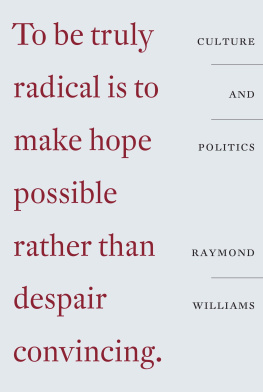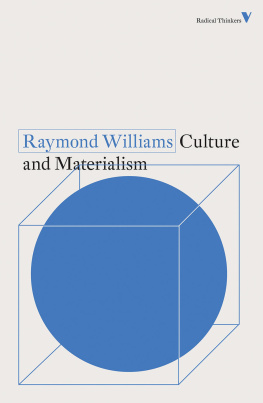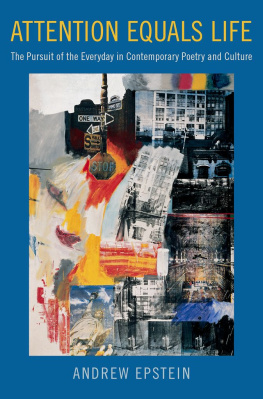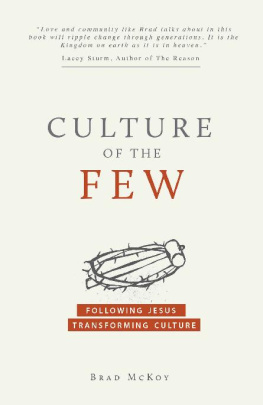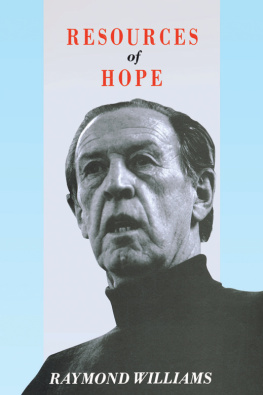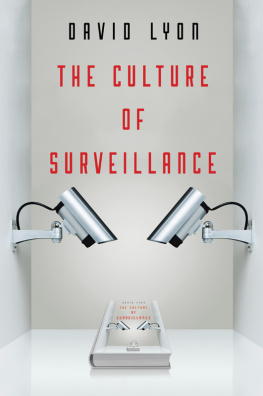EVERYDAY CULTURE
EVERYDAY CULTURE
FINDING MEANING IN A CHANGING WORLD
DAVID TREND
First published 2007 by Paradigm Publishers
Published 2016 by Routledge
2 Park Square, Milton Park, Abingdon, Oxon OX14 4RN
711 Third Avenue, New York, NY 10017, USA
Routledge is an imprint of the Taylor & Francis Group, an informa business
Copyright 2007, Taylor & Francis.
All rights reserved. No part of this book may be reprinted or reproduced or utilised in any form or by any electronic, mechanical, or other means, now known or hereafter invented, including photocopying and recording, or in any information storage or retrieval system, without permission in writing from the publishers.
Notice:
Product or corporate names may be trademarks or registered trademarks, and are used only for identification and explanation without intent to infringe.
Library of Congress Cataloging-in-Publication Data
Trend, David.
Everyday culture : finding and making meaning in a changing world / David Trend.
p. cm.
Includes bibliographical references and index.
ISBN 978-1-59451-426-5 (hardcover : alk. paper)
ISBN 978-1-59451-427-2 (pbk. : alk. paper)
1. Social change. 2. Culture. I. Title.
HM831.T75 2007
306.4068dc22
200701967
Designed and Typeset by Straight Creek Bookmakers
ISBN 13: 978-1-59451-426-5 (hbk)
ISBN 13: 978-1-59451-427-2 (pbk)
Everyday Culture draws its inspiration from a particular historical moment. In 1968, the meanings and potentials of ordinary life received attention in cultural and political circles throughout the western world as never before. Radios were playing Everyday People, a song by the rock/funk band Sly & the Family Stone. Released in the months following the infamous Tet Offensive in Vietnam and the assassination of Dr. Martin Luther King, Jr., Everyday People captured the spirit of American culture as a plea for peace and equality. Remembered for its chorus, I am everyday people, the song resonates in a celebration of diversity, as lead singer Sly Stone Stewart proclaims, We are the same whatever we do, with the refrain, Weve got to live together. Everyday People holds the distinction as the first hit song in the United States by a multiracial performing group.
As Everyday People was rising on U.S. pop charts, a more material manifestation of the everyday was taking hold in Europe. In May 1968, a general strike erupted in France within universities and high schools in a series of uprisings, protesting poor wages and governmental wrongdoing. The riots outside the Sorbonne, in Paris, included workers, minorities, the French Communist party, and members of Situationist Internationale. Within a week, France was crippled by a work stoppage that involved ten million peopleroughly two-thirds of the nations labor forcemaking it the largest strike in recorded history.
Inspired in part by these historical legacies, Everyday Culture is about the confluence of cultural and material possibilitythe bringing together of thought and action in daily life. This book argues that an informed and invigorated citizenry can help reverse patterns of dehumanization and social injustice. The impetus for Everyday Culture can be described in the observation by the British post-war theorist Raymond Williams that culture is ordinary, and that the fabric of meanings that inform and organize everyday life often go undervalued and unexamined.1 Everyday Culture shares with thinkers such as Williams the conviction that it is precisely the ordinariness of culture that makes it extraordinarily important. The ubiquity of everyday culture means that it affects all aspects of contemporary economic, social, and political life. Seen in this light, Everyday Culture is about a hope for a better future.
David Trend
Note
. Raymond Williams, Culture is Ordinary, Resources of Hope: Reflections on Culture, Socialism, and Democracy (London: Verso, 1958).
AN INTRODUCTION
We begin with what we know. In the classic study, The Practice of Everyday Life, which was published in English in 1984, Michel de Certeau draws a distinction between the acquisition and the use of knowledge. A great believer in the intellectual capacities of ordinary people, de Certeau recognized that individuals had skills for critical thinking and understanding the world around them. Yet de Certeau wondered why groups living in poor conditions or under the authority of unreasonable leaders would continue to do so without complaint. The answer, he speculated, had something to do with a disconnection between knowledge of these poor conditions and the act of doing something to change them. De Certeau and many political theorists of his generation concluded that people could benefit from education about the practical skills and strategies needed to change their lives. To that end, de Certeau wrote that we must determine the procedures, bases, effects, and possibilities of this collective activity.1
Everyday Culture: Finding Meaning in a Changing World is about this ongoing quest for solutions to social problems and strategies for positive social change. The book addresses key themes in the study of contemporary communications: the relationships among media, art, and culture; concepts of audience; differing functions of mass communication forms; new information technologies; education and democracy; and issues of identity, difference, and globalization. Often the general public thinks that mass media are all-powerful and that art exists only in museums and has little to do with their personal interests. This book challenges these assumptions by examining media and art in the broader contexts of culture and everyday life. Addressing the many institutions and interests that shape what people listen to, watch on TV, or play on their computers, Everyday Culture puts culture in familiar terms by talking about life at work, at school, and at home. In doing this, discussions in the book center around the role of media culture in our understandings of who we are, how we got here, the kind of world wed like to inhabit, and how we might get to that place.
Everyday Culture asserts that we live in a time in which the everyday cultural activities that fill our lives are largely undervalued and ignored. The things that occupy our time, give us enjoyment, and dominate much of our thinkingreading books, pursuing hobbies, listening to music, watching television, sending e-mail, talking with friends, or sharing mealsare considered by most of us to have little to do with the larger economic circumstances that influence our standard of living, the political forces that determine our rights and our codes of behavior, or the global interests that influence foreign policy, war, and peace. But these things that occupy most of our time and thoughts may also include the daily rituals of school, work, religious observances, commuting, shopping, running errands, and executing household chores.


